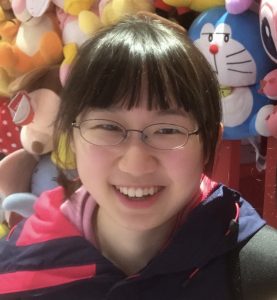main content begins

What made you decide to participate in SURP?
My friend [told me] about this program last year. When I was checking the list of programs, I found the description of one particular project matched with my personal taste. Before the campus shutdown, I happened to visit Dr. Jonathan Braden’s office, where he demonstrated some equations to me on a whiteboard. His verbal explanation was even better than the description posted online, so I decided to work with him.
What is your favourite thing about SURP?
Talking with Dr. Jonathan Braden makes me appreciate the subtleties between methodologies. Moreover, he corrected my misconceptions on the interpretation of various theories. My favourite thing is that he understands my ambiguous questions and often times he replies with convincing comments/insights.
Can you tell us about your research project?
My project is exploring false vacuum decay, where a large region of space trapped in a metastable state decays through the nucleation of bubbles. This is similar to a pot of water boiling, except the transition is driven by quantum rather than thermal fluctuations. Such transitions may have occurred in the ultra early Universe, including as a description of the birth of our Universe in the Big Bang. I am using a novel approximation scheme that, in contrast to existing approaches, allows me to explicitly see how the Universe evolves in time. In particular, I am considering more complex systems than are standard in the literature to see what happens when the false vacuum itself changes in time.
Can you explain how SURP has perhaps been different from your undergrad work?
My earlier studies were restricted to low dimensions and toy models, where the mathematical derivations seem arbitrary and unnatural since most hidden properties/limitations were omitted/irrelevant at that time. Although I may have 3000 questions, I have to painfully pick three to ask Professors and TAs due to time constraints. This phenomenon got reversed in SURP. Initially, I prepared three questions in mind. But after the weekly meeting with Dr. Jonathan Braden, I have infinite questions to worry about.
What are your plans for the future?
I hope Dr. Jonathan Braden can proceed with his research career and accept me as his student when I have developed enough problem-solving skills to be qualified to work with him on this project again. At that time, he would not need to explain his code from the very beginning.
2020 Student of the Week Archive